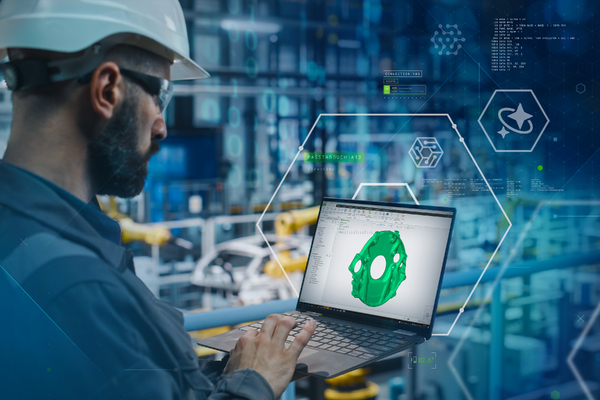The future of enterprise performance: from silos to collective intelligence
Sponsored by Keyrus EPMEnterprises thrive when finance, sales and operations align – discover how EPM and AI unlock collective intelligence and growth

Enterprises have never lacked expertise. Finance teams excel in optimising capital allocation. Sales leaders know how to unlock growth. Supply chain experts safeguard resilience, while HR navigates the complexities of talent. Each function has its own language, its own models and its own way of creating value.
But here lies the paradox: while every function is strong in isolation, the enterprise as a whole often struggles to move as one. Strategy becomes fragmented. Execution slows. Opportunities are missed – not because the people aren’t capable, but because their expertise remains unaligned.
At Keyrus, we hear this challenge echoed across more than 200 enterprises worldwide. A global brewer evolved from financial reporting to extended planning and analysis (xP&A), linking operational insights with strategic decision-making. A life sciences leader streamlined workforce and R&D portfolio planning to accelerate innovation. An energy utility consolidated regional planning cycles, boosting efficiency and resilience during disruption.
The voice of the market is clear: the future of performance lies not in functional excellence alone, but in helping enterprises plan smarter together.
From functional silos to enterprise vision
The future of performance is defined by the ability to align expertise across domains. Finance no longer just forecasts – it informs commercial and workforce priorities. Supply chain no longer simply optimises inventory – it synchronises with sales strategies and customer demand. HR no longer only manages capacity – it ensures that talent is aligned with enterprise ambitions.
An Anaplan study on enterprise decision excellence highlights this point: organisations that align decisions across functions don’t just move faster, they achieve higher growth, stronger margins and greater resilience. This is not incremental progress; it is a structural advantage.
We see this daily in our work. One global consumer goods company materially reduced planning cycle time and improved capital allocation by integrating finance and supply chain planning. A technology giant leveraged smart account scoring and workforce planning insights to realign sales territories and unlock new revenue. These are not theoretical benefits; they are tangible results delivered in today’s market.
Why AI and ML are catalysts for a new era
For decades, enterprises have struggled with the knowledge gap between functions. Specialists spoke different languages, and translation often relied on manual processes that were slow and error-prone.
Artificial intelligence and machine learning change the rules. AI acts as an interpreter, empowering experts in one field to understand the context of another. ML models surface connections, highlight trade-offs and provide clarity at the speed modern business requires.
Imagine a CFO assessing the impact of a market disruption. With ML-powered scenario modelling, they can instantly see not only the financial implications but also ripple effects across supply chain, sales and workforce. Imagine a sales leader redesigning territories with real-time visibility into product availability and cost structures. This is not science fiction – it is becoming the new operating model of high-performing enterprises.
At Keyrus, we are working with clients to test and deploy machine learning models within enterprise performance management. Examples include:
- Forecasting demand with ML models that incorporate both historical data and external signals
- Optimising sales performance with ML-driven account segmentation and territory and quota planning
- Detecting anomalies in financial plans to improve accuracy and reduce manual review time
The true value of these initiatives lies in augmenting human judgment, accelerating time-to-value and amplifying the impact of expertise.
AI and ML are not here to replace specialists. They are here to connect them. And when expertise is connected, decision-making becomes collective and the enterprise itself becomes intelligent.
The future of performance is collective
Performance has long been measured in financial terms. But in today’s world, enterprise performance is about adaptability, speed and coherence. It is about ensuring every function moves with the same rhythm, guided by a common vision.
The cultural shift is just as important as the technological one. When finance appreciates the dynamics of sales, when HR aligns with supply chain realities and when commercial teams anticipate the constraints of operations, the enterprise becomes more than the sum of its parts. It becomes resilient, agile and capable of sustained excellence.
This is what we mean by collective intelligence: the ability of enterprises to leverage EPM platforms, AI and ML to plan smarter together – to operate as one, regardless of complexity or scale.
A call to leaders
The enterprises that will define the next decade are those that embrace this shift. They will not view planning as a back-office process, but as a strategic capability. They will invest in platforms that integrate functions in AI and ML that accelerate understanding, and in cultures that reward collaboration as much as individual expertise.
We see leading enterprises already making this pivot. A global retailer modernised trade promotion management with EPM and reduced spend by double digits. At a leading e-commerce and financial technology company, embedding machine learning into demand forecasting and workforce capacity planning, improved forecast accuracy, reduced planning time and enabled the organisation to manage hundreds of thousands of daily interactions with greater efficiency. A financial services firm harmonised financial and operational models to respond to disruption with speed. These are the signals of what is to come.
The future of performance is not siloed. It is collective, aligned and intelligent. Enterprise performance management is the foundation. Artificial intelligence and machine learning are the catalysts. And leaders must be the visionaries who bring it all together – helping their enterprises plan smarter together.
To explore how Keyrus is helping enterprises plan smarter together, visit keyrus-epm.com.
Nicolas Camerman, CEO, Keyrus EPM Global

Business Reporter Team
You may also like
Related Articles
Most Viewed
Winston House, 3rd Floor, Units 306-309, 2-4 Dollis Park, London, N3 1HF
23-29 Hendon Lane, London, N3 1RT
020 8349 4363
© 2025, Lyonsdown Limited. Business Reporter® is a registered trademark of Lyonsdown Ltd. VAT registration number: 830519543





